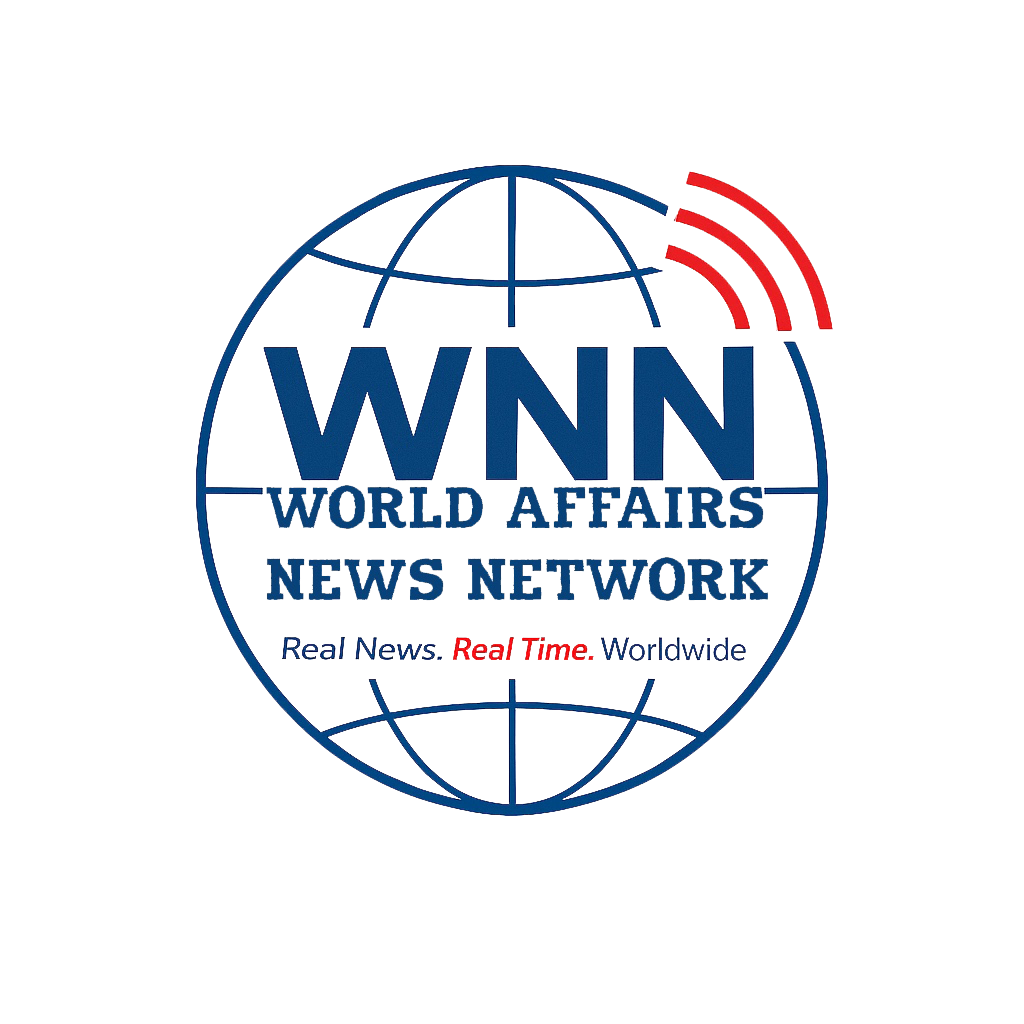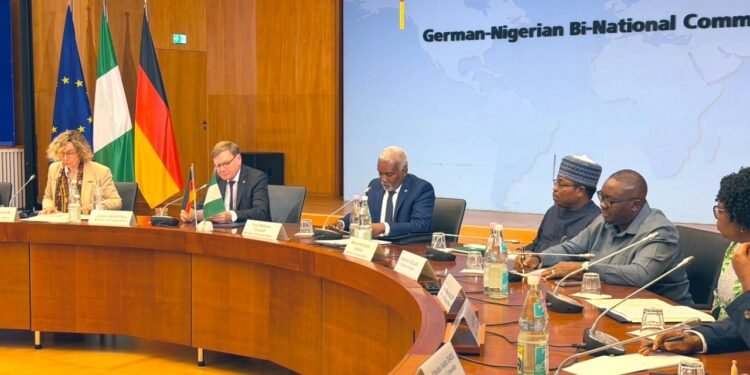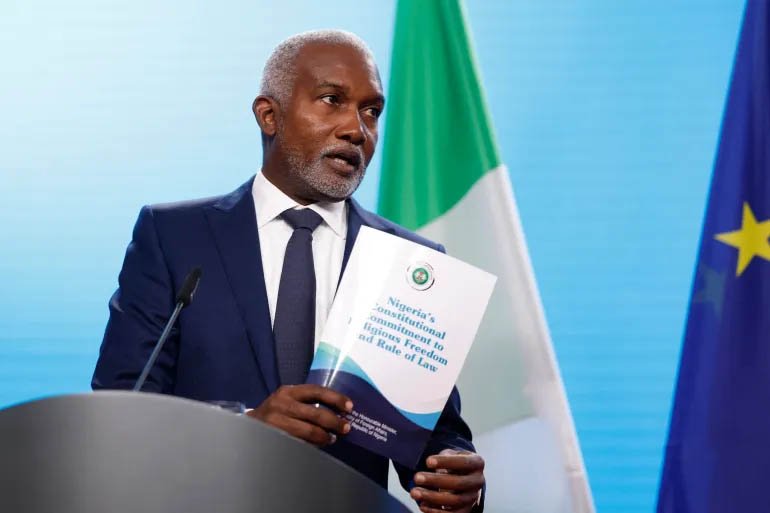ABUJA/BERLIN: The recent outburst by US President Donald Trump, threatening to halt aid and even launch military action over alleged “Christian killings” in Nigeria is less about human rights and more about politics. His statements, laced with alarmist rhetoric and devoid of credible evidence, have placed Africa’s largest democracy at the intersection of America’s culture wars and its own struggle to define faith, security, and sovereignty on its own terms.
In Berlin, Nigeria’s Foreign Minister Yusuf Tuggar delivered what might be the most measured rebuttal of this election-season hysteria. Standing beside his German counterpart, Tuggar held up a document titled “Nigeria’s Constitutional Commitment to Religious Freedom and Rule of Law” and declared, “It’s impossible for there to be religious persecution that can be supported in any way, shape, or form by the government of Nigeria.” His words were calm but firm a quiet assertion that Nigeria will not be lectured on democracy and faith by a man using religion as a political cudgel.
Trump’s comments accusing the Nigerian government of allowing the “killing of Christians” and ordering his “Department of War” to prepare for action are extraordinary not just for their recklessness but for what they reveal about the instrumentalization of religion in US foreign policy. The same evangelical networks that helped fuel his political base have been pushing a narrative of “Christian genocide” in Africa, often ignoring the complex, multi-causal realities of local conflicts. When Senator Ted Cruz introduced the Nigeria Religious Freedom Accountability Act of 2025, it was cast as a defense of faith, but in truth, it serves the same ideological agenda that seeks to export America’s polarized identity politics abroad.
Nigeria’s reality is far more complicated than the simplistic story being told in Washington. Violence in the Middle Belt and the north has claimed victims across both Christian and Muslim communities, driven by land competition, resource scarcity, and the collapse of local governance not by a state-sponsored religious agenda.
To reframe these tragedies as a “Christian persecution” is not only dishonest but dangerous. It feeds division, erases nuance, and risks inviting the very sectarianism that has already torn apart parts of the Sahel. Tuggar’s warning, “We must not create another Sudan”, is both prophetic and pragmatic.
Trump’s rhetoric also reflects a deeper pattern: the weaponization of human rights as a tool of political theatre. By threatening to “cut off aid” and consider “military action,” Washington projects power without responsibility, moral outrage without context. It is a gesture not of solidarity with victims but of dominance over narratives a way to turn other nations’ pain into points in an election campaign.
For Nigeria, this confrontation is not just about diplomacy; it is about dignity. The country’s leadership is right to insist that its sovereignty and constitutional principles be respected. Nigeria’s constitution guarantees freedom of religion; its challenge lies in implementation, not intent. A nation of 230 million people almost evenly split between Christians and Muslims cannot afford to let external forces redraw its lines of identity and loyalty.
The world should take note of what this episode really represents: a collision between a post-truth American presidency and a postcolonial African democracy still asserting its right to define itself. As the headlines swirl, Nigeria’s quiet defiance is a reminder that faith, in politics or diplomacy, must never become a weapon.
Trump’s false crusade may win applause in some corners of the American right. But for those who still believe in international respect, pluralism, and truth, it stands as a cautionary tale of how a superpower’s rhetoric can sow chaos in lands it claims to save, and how a confident, democratic Nigeria can push back with reason, restraint, and constitutional clarity.
– Editor Desk, WorldAffairs






















